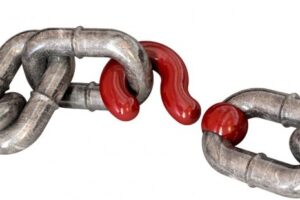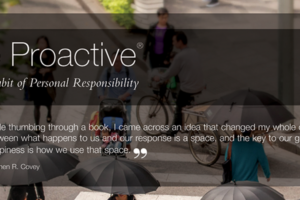
How would your team describe your leadership style when things are stormy? When things are calm?
Leaders who carry their own weather exercise emotional discipline and resist the temptation to allow external dramas to distract them. When we’re triggered emotionally, it’s easy to forget we have a choice as to how we will respond. Central to Habit 1: Be Proactive®, from The 7 Habits of Highly Effective People, is the concept that between what happens to us and how we react exists a space. In that space lies our freedom and power to choose our response. We all experience situations where it’s tempting to react quickly and without thought. This is where the choice of carrying your own weather manifests itself.
To carry your own weather:
- Define your personal and professional values (from which your behaviors will be exhibited in both good and rough weather).
- When faced with a situation that threatens to hijack your emotions, stop. Take a breath and think carefully about the response you won’t have to apologize for and that leaves people whole.
- Consciously calibrate your response to avoid a regretful revisit later. Recognize that most flash responses won’t represent how you feel an hour (let alone a day) later. Consider saying: “Could I have a few hours to think about my position so that it is congruent with what I am going to think and feel later on?”
- Don’t allow highly emotional people to suck you into their vortex. Not every conversation necessitates an immediate response from you. Sometimes a simple “Thank you for sharing” is enough.
Remember that you are your own meteorologist. If you don’t like the weather, change it.
FROM MESS TO SUCCESS: CARRY YOUR OWN WEATHER
- Identify people or circumstances that cause you to react emotionally.
- When these situations occur:
- Use the strategies listed above.
- If you need more time to react to an emotional conversation or situation, take it. Go for a walk, or do whatever activity allows you to disengage from the emotions of the moment. Stop, think, and evaluate the situation or stimulus and the response that aligns with the true you, then proceed.
- If drafting a difficult or an emotional email response, don’t send it until you’ve reflected on the message at least twice. Consider sending it to yourself to reread and rewrite.
- As your own meteorologist, write the day’s metaphorical forecast in your planning calendar. Be Proactive and purposeful about the weather you’re choosing to carry throughout the day.
Leading a team requires a different skillset than working as an individual contributor. To succeed in the face of new challenges, first-level leaders need to shift how they think and act. Sign up for: The Journey: Becoming A First Class Manager and develop your people into a high-performing team.






